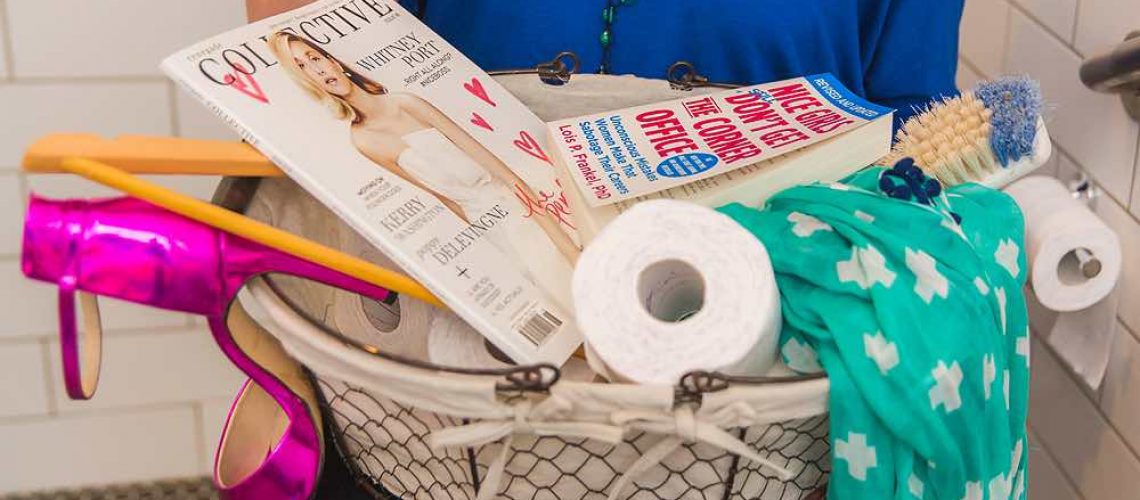We’re all prone to dump stuff that we intend to deal with later. I call this deferred decisions. Often it ends up on the kitchen counter, dining room table or in the lounge as it’s where we go when we first get home.
Sometimes we’re aware of why we do it. It’s because we’re in a rush.
Other times we’re not sure how it ends up in such a big mess. Either way, I refer to them as ‘deferred decisions’. You’ve put off deciding what to do with it, until it resurfaces in front of you again. I’d bet that stuff, those deferred decisions, would fall into one of these four categories.
Deferred Decisions
1. The “I have no idea where to put this” Stuff
Often we will come home with something and all good intentions to put it away. When we go to do that, we’re stumped on where to file or store it.
You may need to create a home for it.
To create the right home for it, give yourself some time to think about why you’re keeping it and when you’d use it or reference it again. The reason you’re keeping it will dictate where you need to store it, or how you’ll file it.
Just remember that if you don’t think you’ll find it again (or you’ll forget that you even have it), it’s not worth keeping.
2. The “I need to do something with it still” Stuff
We keep this stuff out as a reminder that we need to do something with it. Filing, paying a bill… returning it to someone.
I encourage my clients to give it a little more thought. What do you need to do with it? Is there a temporary home for that? An example of that is the bill that needs paying goes into your ‘Pay Me’ folder on your desk.
If it doesn’t have a temporary home that keeps you on track then I’d ask you another question. Do you get a lot of these sorts of things? If so, create a spot for them. Some examples are:
- An Action Station for papers that need actioning
- A Fix It Box
- A spot to return items to shops, friends, family or charity
I’d then encourage that you make a note of the action you need to take with the item via your preferred To Do List tracker (apps, excel, notebook). This will ensure it gets done.
3. The “I have no idea if I should keep it” Stuff
These items may come in the form of gifts, hand me downs, paperwork. It could be the bits and bobs that “might be important”. Let’s go over these briefly.
Gifts and hand-me-downs
Be honest with yourself. Are you going to use it? Really? If not, be brave and donate it now. Have gratitude towards the person who gave it to you and let it go to someone who’ll love it.
Paperwork
Sometimes mail or other paperwork can trip you up. Give yourself time to think about if you need to keep it. If the answer is yes, why are you keeping it? Will you remember you have it and where it’s filed? File it in its appropriate spot.
‘Bits and Bobs’ or electronic cords
These items stump everyone. What if it’s important? If you haven’t noticed it missing yet, you’re unlikely to. This doesn’t fly with everyone so, ask yourself if you’re going to remember where to find it, if its use becomes apparent. If the answer is no it may as well get tossed. The other useful question is, could you replace it if you threw it out? This is often the case with cords or screws. So let it go.
If you really struggle with this, create a box to store the ‘I don’t know what this is’ stuff. At least you’ll know where to find it.
It’s also important to set rules for yourself about what you should and shouldn’t keep, but that’s another blog post.
4. “I can’t be stuffed putting it away right now” Stuff
A lot of the time, we’d prefer to do something else with our time. We’re tired. We’d prefer to do anything rather than put the scissors back where they belong.
This one really comes down to discipline. Catch yourself thinking it, and follow through immediately. If this isn’t going to work for you, then you can put it in the ‘Other Room Basket’ and deal with it at the end or beginning of each day. You’re only other alternative is to dedicate a day a week, where you fix all of your deferred decisions. Be clear on your stamina though and how long a time you should put towards these activities.
Future State – Where You’ll End Up
If you can observe yourself thinking ‘I’ll do it later”, then you’re half way there. The more you spot yourself doing it, the more you’ll find yourself dealing with it then and there. There will be no more deferred decisions.
If you still choose to ‘do it later’, then at least you’ll know that you’ve got a lot to put away. Without that awareness, you can become blind to how many decisions you’ve put off. This can lead to that overwhelming “OMG I have so much to clean up” moment.
What’s the last decision you deferred? If you like, share it in our supportive Facebook Group and workshop a plan to get it sorted!







